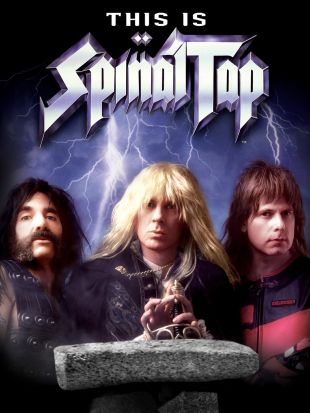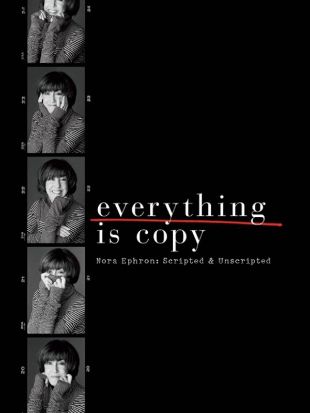As the son of multi-talented comedic genius Carl Reiner (Your Show of Shows), Rob Reiner instantly outgrew his father's legacy to establish himself as an independent force in multiple facets of the entertainment industry.
Born in the Bronx in 1945, Reiner moved to Los Angeles with his folks at the age of 12 (not coincidentally, the very same year that the NYC-based Caesar's Hour, with Carl Reiner as a regular contributor, wrapped) and soon began acting in regional theater and improv ensembles. After appearing on various episodes of Alfred Hitchcock Presents from the age of 16 and studying drama at UCLA, Reiner co-founded the improvisational comedy troupe The Session, then made his onscreen cinematic debut in his father's Enter Laughing (1967) and contributed scripts (in his dad's vein) to CBS's controversial The Smothers Brothers Comedy Hour. His first massive break arrived when he landed the role of Mike "Meathead" Stivic, the liberal, Polish son-in-law to Carroll O'Connor's racist working stiff Archie Bunker, on Norman Lear's groundbreaking network hit All in the Family. In 1971, Reiner wed Penny Marshall (the sister of another comic demagogue, Garry Marshall); the marrieds frequently appeared together on ABC's The Odd Couple.
Reiner earned two Emmys for All in the Family, but ended his role in 1978 (after seven seasons) as the series transitioned into Archie Bunker's Place. A now-forgotten telemovie followed -- the romantic comedy More Than Friends, written by and starring Reiner and Marshall (and directed by future Cheers progenitor James Burrows) -- but by that point, the Reiners' marriage was in disarray; a divorce ensued in 1979, followed by several years of inactivity on Reiner's end.
Reiner bounced back as a director, however (and then some) in 1984, with the hysterical mockumentary This Is Spinal Tap, ostensibly a spoof of The Song Remains the Same, The Kids Are Alright, The Last Waltz, and other mid-'70s concert films, about a gleefully moronic glam rock band (Christopher Guest, Michael McKean, and Harry Shearer) whose hits include "Sex Farm," "Smell the Glove," and "Hellhole." The picture became a sensation (a massive cult hit), led to several Reiner-less follow-ups with the principal cast (Waiting for Guffman, Best in Show, A Mighty Wind), and -- most importantly -- launched Reiner as a directorial force. He helmed a cute and charming sophomore effort, the teen comedy The Sure Thing (1985), which boasts two superb lead performances by John Cusack and Daphne Zuniga, and demonstrates great taste and sensitivity, but failed to make a splash despite solid reviews (Roger Ebert declared it "a small miracle" and Variety assessed it as "sweetly old fashioned" and "appealing.") The following year, the director struck box-office gold with his third effort, Stand by Me (1986). In this coming-of-age saga, adapted from a Stephen King short story by Ray Gideon and Bruce A. Evans, Reiner successfully blends comedy, drama, and sentiment, and elicits exemplary performances from an ensemble of teenage performers including River Phoenix and Wil Wheaton, in his story of a bunch of adolescent boys who venture out to find a local boy's corpse.
For his fourth effort, Reiner helmed the legendary William Goldman's adaptation of his own 1973 fantasy novel, The Princess Bride (which had purportedly floated around Hollywood for 13 years), and scored in the process -- especially with young viewers, who immediately warmed to Cary Elwes' dashing adventurer and Robin Wright's heroine. (The picture's neat comic turns by Billy Crystal, Wallace Shawn, and Andre the Giant stretched its appeal to older viewers, as well.) Reiner followed this up with another four-star blockbuster, and one of the most lucrative (and affable) pictures of 1989, the romantic comedy When Harry Met Sally, written by Nora Ephron. It sports exceptional lead performances by Crystal and Meg Ryan, and -- in one of the most infamous movie bits of the past few decades, a cameo by Reiner's own mother, Estelle, who provides the film's funniest line.
Reiner began the 1990s with another Stephen King outing: Misery, a claustrophobic horror picture adapted from a 1987 King novel. In directing the picture, Reiner elicited exceptional performances from James Caan and Kathy Bates. The latter won a Best Actress Academy Award for her portrayal of the psychopathic ex-nurse Annie Wilkes, who confines Caan's author in her home and forces him to write a new manuscript under the duress of torture and threatened homicide.
With a trio of A-list actors including Jack Nicholson, Tom Cruise, and Demi Moore, the director's late 1992 courtroom thriller A Few Good Men (adapted by Aaron Sorkin from his play) earned a Best Picture Oscar nomination and another Golden Globe nomination for Reiner. Unfortunately, this marked the beginning of a decline, of sorts, for Reiner. He then helmed 1994's god-awful family-friendly comedy North (reviled by just about everybody). The following year's The American President charmed audiences, but 1996's Ghosts of Mississippi struck most viewers as uneven. In 1999, Reiner produced, directed, and co-starred in The Story of Us, a romantic comedy starring Michelle Pfeiffer and Bruce Willis, but it opened up to mediocre reviews. (Ebert gave it one star and moaned, "Watching it is like taking a long trip in a small car with the Bickersons"; Janet Maslin observed that it "offers such an arthritic vision of middle-aged marriage that it feels like the first Jack Lemmon comedy made expressly for the baby-boom generation.")
Perhaps riled by these disappointments -- and seeking greater immersion in California politics -- Reiner took several years off as a director, until 2003's Alex & Emma, a romantic comedy about writer's block starring Luke Wilson and Kate Hudson. With one or two exceptions, critics universally panned the picture (giving Reiner his most terrible reviews to date). 2005's Rumor Has It..., yet another romantic comedy starring Jennifer Aniston as a woman who goes off in search of her family's roots, also opened to dismal reviews and lackluster box office, despite the star appeal of Aniston and her male lead, Kevin Costner.
In 1987, Reiner co-founded Castle Rock Productions (the company's name refers to a fictional town created by Stephen King). In addition to directing and producing, Reiner has also pursued an acting career on the side, with supporting roles and cameos in such films as Postcards From the Edge (1990), Sleepless in Seattle (1993), Bullets Over Broadway (1994), The First Wives Club (1996), Primary Colors (1998), EDtv (1999), The Muse (1999), The Story of Us (1999), and The Majestic (2001). Later, he delivered a performance as Wirschafter in his own Alex & Emma (2003) and cameo'd as himself in the 2003 David Spade comedy Dickie Roberts: Former Child Star. Between 2004 and 2006, Reiner joined Whoopi Goldberg, Mandy Patinkin, William H. Macy, and others to voice the late Christopher Reeve's CG-animated feature Everybody's Hero, about a boy who attempts to retrieve a talking baseball bat from a crooked security guard. In 2007 he had one of his biggest late-career successes directing Jack Nicholson and Morgan Freeman in The Bucket List. Three years later he made the little-seen comedy Flipped.
Reiner married his second wife, Michele Singer Reiner, in 1989.



